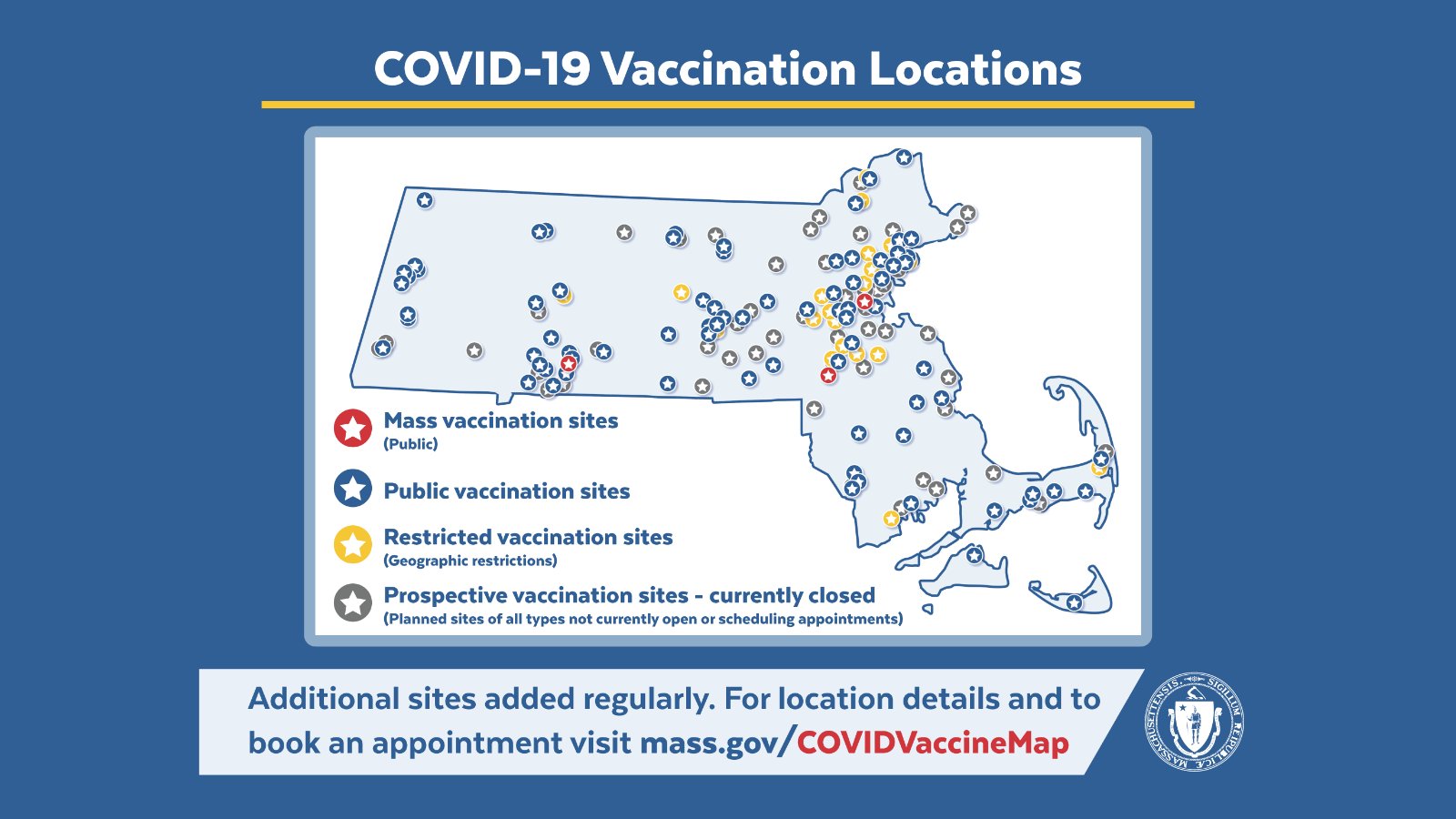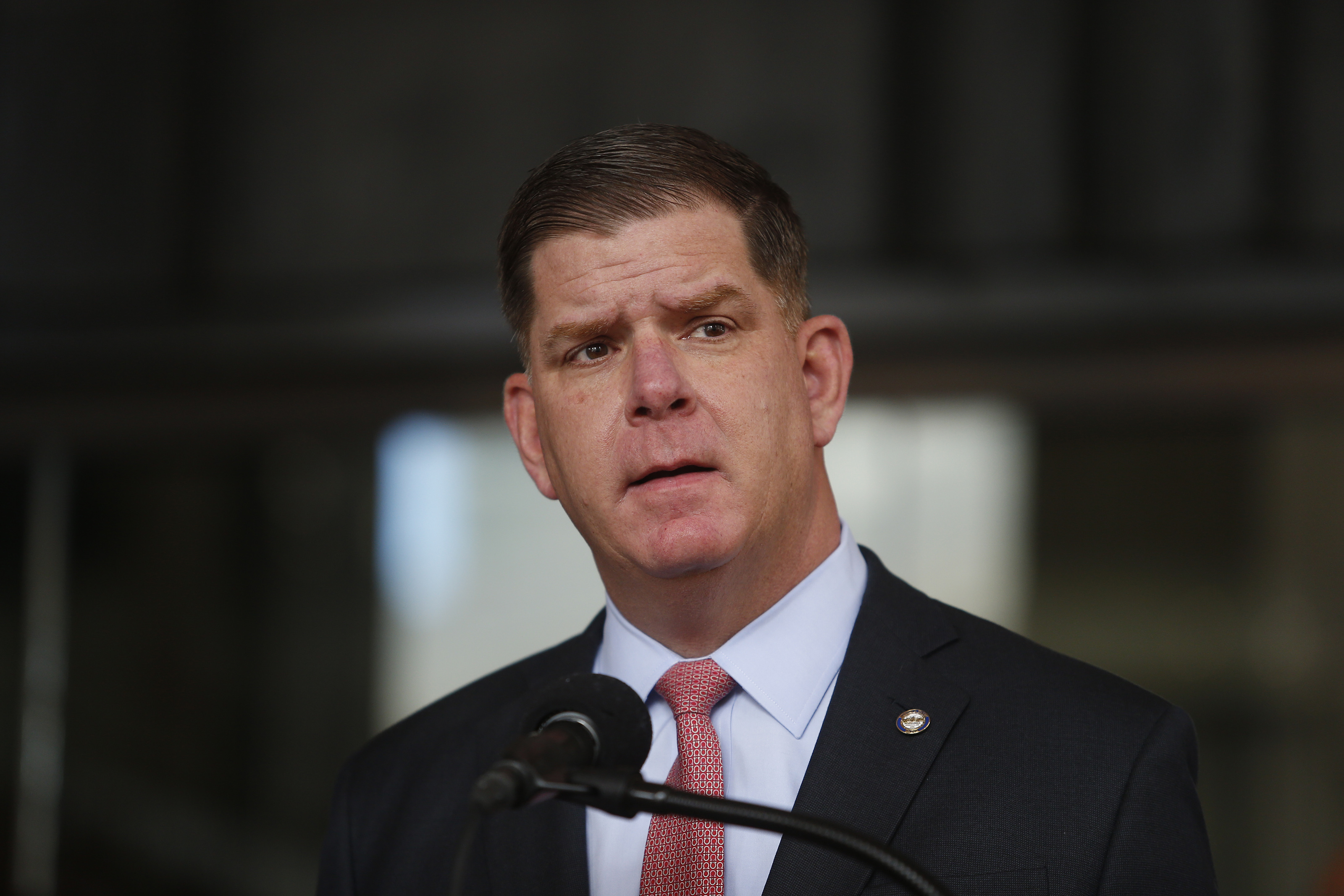Gov. Charlie Baker dedicated his annual State of the Commonwealth address Tuesday evening to the people of Massachusetts, from how they've heroically confronted the coronavirus pandemic to how much TV they've been watching.
Baker thanked Massachusetts residents for how they've adjusted to mitigate the coronavirus pandemic and the heroes who have stepped up to help during the calamitous year.
"Their resilience, creativity and commitment gives me hope. And because of who they are and what they do, I can say to you tonight that I know the state of our Commonwealth is strong," he said.
Promising that "better days are coming," Baker discussed how the commonwealth will recover and adapt to a forever-changed economy, thanks in part to major laws passed this year.
And with some help from the television show "Ted Lasso," Baker transformed the message he's delivered at his near-daily news conferences on the virus -- follow the experts' advice and we'll make it through the pandemic -- into a message that he hoped will help people have greater empathy for each other despite the trying times.
The show is about a relentlessly positive American college football coach who moves to England to coach professional soccer despite challenges like not even knowing how offside works. It stuck with the governor, he said, especially a part where it quotes Walt Whitman's line, "Be curious, not judgmental."
Baker said that, if people take that message to heart, "we will all grow."
"And hopefully, we'll all learn a few things we didn't know before and be glad that we did," he continued. "We'll also be happier and healthier, and can use our newfound knowledge and understanding to build a better, stronger commonwealth as we come out of this awful pandemic."
Instead of talking to a packed Massachusetts House chamber, Baker delivered what he called "a very different State of the Commonwealth address" from his office, the latest sign of the state's ongoing fight with the global pandemic.
In last year's address, the only epidemic Baker mentioned was the state's struggle to combat an ongoing opioid crisis.
He summarized the many ways his administration fought to keep people safe and informed of the coronavirus pandemic, called vaccines "the light at the end of the tunnel" and listed at length how people and organizations in Massachusetts stepped up, from health care workers to first responders and grocery store clerks to food pantries.
"I could literally go on for hours and still never thank all the organizations and people we owe a huge debt to for helping us get through this. They, and all those who find the strength and compassion to support their friends and neighbors, are heroes," Baker said.
Senate President Karen Spilka reacted to the speech Tuesday night by latching on to Baker's theme.
"Like the Governor, I am so grateful to the people of Massachusetts for their perseverance during this most difficult year," she said in a statement.
Baker is now ramping up the state's ability to administer vaccines to its approximately 6.9 million residents, and said that by the middle of next month its scores of vaccination facilities will be able to give out 305,000 doses per week, provided the federal government can distribute that many.
In the nearly 12 months since COVID-19 was first detected in the Bay State -- the first case was announced Feb. 1, 2020 -- the scourge has become a nearly all-consuming task for Baker. But the work of state government continues, and his state budget proposal will likely be filed on Wednesday, kicking off Beacon Hill's annual budget debate.
There are other non-COVID-19 priorities still waiting final action, including a sweeping climate change bill that lawmakers approved in the waning hours of the last legislative session.
Baker vetoed the bill after the session ended forcing lawmakers to refile it in the new session with the hopes of quickly passing it and getting it back to Baker, who said he supports many parts of the bill but wanted to use his veto authority to help improve it.
It was one of the legislative accomplishments he spent time trumpeting Tuesday night, along with telehealth reform, millions dedicated to improving transportation and housing reform.
"We acted and passed one of the most comprehensive police reform laws in the country," Baker said, sharing that he was proud it was done without the partisan rancor that accompanied the issue last year in Washington and many other states.
Baker looked ahead in the speech as well, though briefly and without offering any policy proposals.
He noted that the coronavirus will pose a challenge to Massachusetts on "the future of work," now that people have gotten used to working remotely, away from the office. That won't just affect offices, he said, but commuting, where companies recruit, even the kinds of places people live.
"It's critical that we understand this, and lean into what this reset means, so that we create the community building, housing, economic development and transportation programs that align with these changes," Baker said.
The Associated Press contributed to this report.



